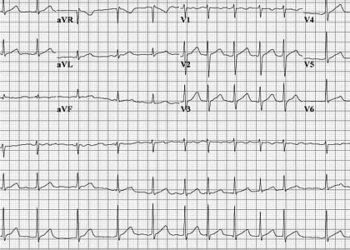COVID-19 mRNA vaccines are safe and effective in children aged 5 to 11 years
1. In a systematic review and meta-analysis of randomized trials and cohort studies in children 5 to 11 years old, two-dose mRNA vaccination was associated with a lower risk of overall and symptomatic COVID-19 as well as a lower risk of hospitalization.
2. Local adverse events occurred in a majority of children after vaccination, but severe adverse events including myocarditis were extremely rare.
Evidence Rating Level: 2 (Good)
Study Rundown: Two mRNA vaccines are approved to prevent SARS-CoV-2 infection in children aged 5 to 11. However, vaccine uptake has remained low for children, perhaps in part because of misperceptions that COVID-19 vaccination offers little benefit in this population. This systematic review and meta-analysis aimed to assess both the efficacy and safety of these vaccines in children 5-11 years old based on randomized clinical trials as well as cohort studies. Based on two randomized controlled trials and 15 cohort studies including a total of about 14 million children, vaccination was associated with 53% lower odds of any COVID-19 infection. Risks for symptomatic infection, hospitalization for COVID-19, and multisystem inflammatory syndrome in children (MIS-C) were also significantly decreased in the vaccinated groups, with a 95% reduction in odds of MIS-C. Based on two randomized trials and five cohort studies examining the adverse effects of vaccination, vaccines were associated with a significantly increased risk of adverse effects, with local adverse effects such as pain and redness being the most common. The incidence of myocarditis after the second vaccine dose was 1.8 per million. This meta-analysis further bolsters the case for a benefit of COVID-19 vaccination in preventing both overall and severe COVID-19 infections in children; the dramatic reduction in risk for MIS-C is particularly striking. Though vaccine-associated adverse events were common, only a small proportion of them was severe. Significant limitations of this study include the reliance on mostly uncontrolled cohort studies, short-term follow-up periods, and lack of controlling for previous infection. Future studies may be able to address some of these shortcomings.
Click to read the study in JAMA Pediatrics
Click to read an accompanying editorial in JAMA Pediatrics
Relevant Reading: COVID-19 infection in children: Diagnosis and management
In-Depth [systematic review and meta-analysis]: Peer-reviewed randomized controlled trials and observational studies including children aged 5 to 11 years were included. Studies’ mean follow-up periods ranged from 7-90 days. The 95% confidence interval (CI) for the odds ratio (OR) of 0.47 associated with any COVID-19 infection after vaccination was 0.35 to 0.64. The I2 statistic was 99% for this analysis, indicating homogeneity, and the certainty of evidence was high based on the Grading of Recommendations Assessment, Development, and Evaluation approach. In subgroup analyses, infection risk was reduced more with vaccination during the delta-predominant period than the omicron-predominant period, though the difference was significant in both periods. The OR for symptomatic infection was 0.53 (95% CI 0.41-0.70), for hospitalizations was 0.32 (95% CI 0.15-0.68), and for MIS-C was 0.05 (95% CI 0.02-0.10). Analysis of adverse effects was based on a one-group meta-analysis due to a lack of controlled data. After both the first and second vaccine doses, 86.3% of all vaccinated children had at least one documented adverse event, with 56.4% of children having systemic effects such as fatigue, fever, or headache and 8.8% of children having events preventing normal activities after the second dose.
Image: PD
©2023 2 Minute Medicine, Inc. All rights reserved. No works may be reproduced without expressed written consent from 2 Minute Medicine, Inc. Inquire about licensing here. No article should be construed as medical advice and is not intended as such by the authors or by 2 Minute Medicine, Inc.








